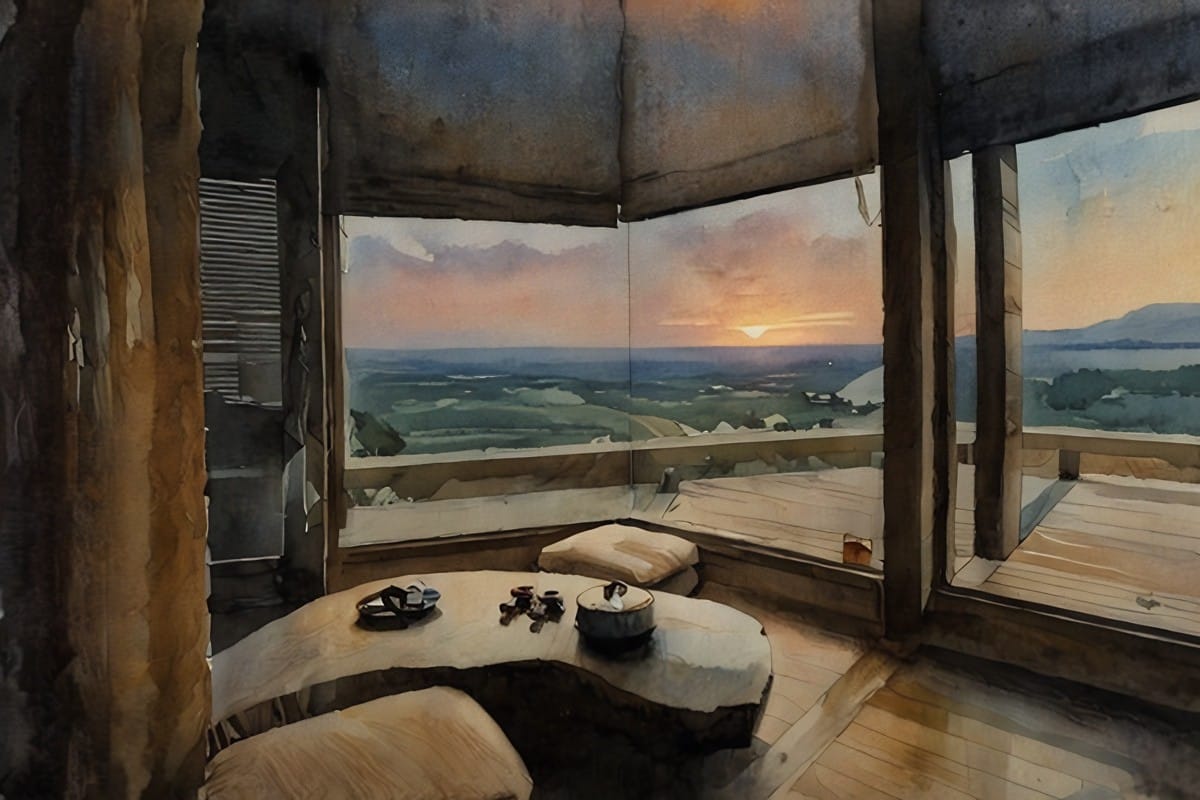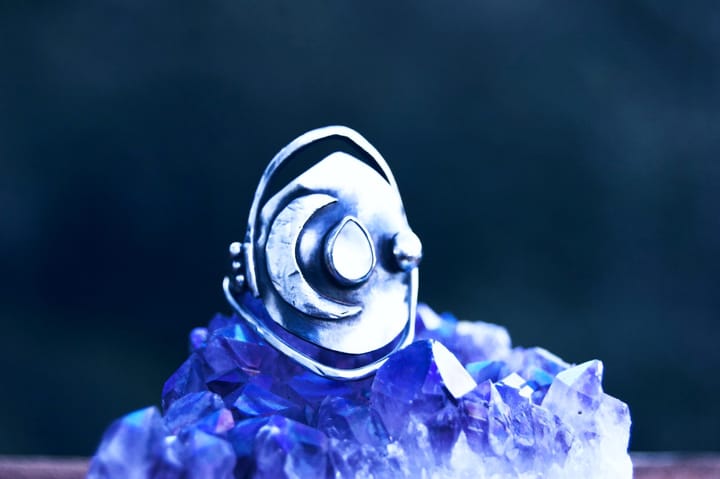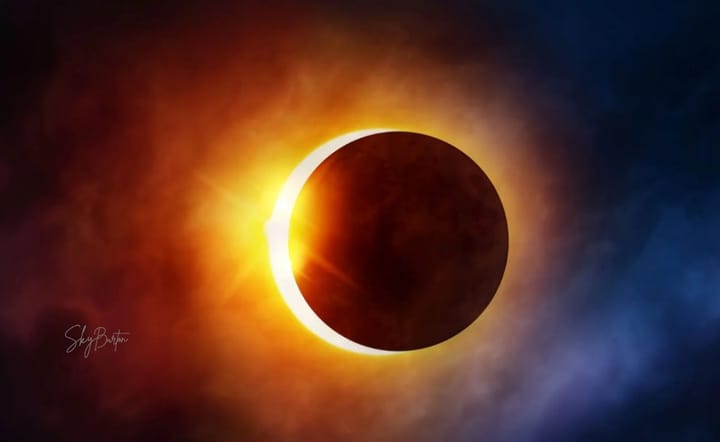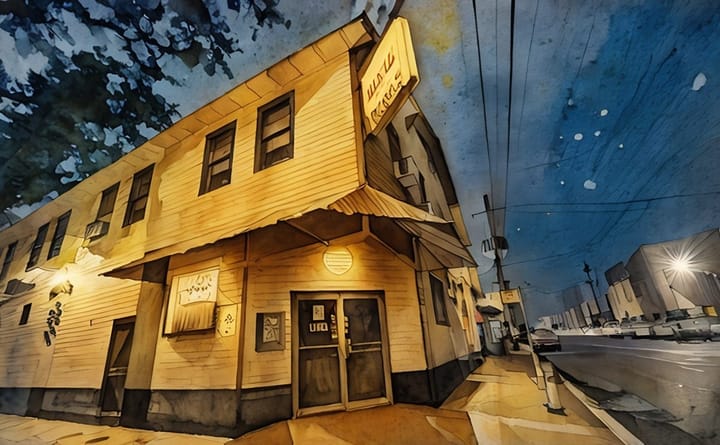Chapter 5 - A Series of Approximations
I have never believed in the possibility of exactness. There are no straight lines in nature therefore only by a series of approximations do we perceive truth. — Stan Hall, 1976

Friday, February 4, 1994
A thunderstorm came on suddenly after their arrival but disappeared within the hour, leaving a sky of heaving inverted waves like the ocean turned upside down. Sara shivered and silently cursed the weather, wishing for the cold, still, silent gray fog that often sat on the coastline of California.
Jax was already running up the driveway to Tom's house. The weather never fazed him—in all his eleven years she had never heard him complain about being cold or hot or wet. His complaints were about being bored. Sara would usually find him in his room, computer parts scattered, reassembling, or studying old academic books about rocks or insects, or he would draw detailed illustrations of monsters and future cities while creating stories for his comic books. He was both cerebral and creative, with a depth that even strangers could sense. He was only four the first time a stranger approached her on a playground to tell her that Jax was unusual.
"Your son—we were just talking—he's so clever! You must know that he is a very old soul—and at such a young age. He has a powerful aura."
Sara could only thank the woman—she didn't believe in gods and demons and therefore, neither in spirits and auras or angels or ghosts. Not then, anyway.
...
Tom Allen's cliff house above Pfeiffer Beach in Big Sur was full of wonders and oddities and one of the reasons Jax liked to visit even though there were no typical kid things to do. Tom had done little remodeling after his mother died, preferring to keep it in the serene simplicity she loved. This weekend—this birthday of Jax's—was different. All three of them were in a state of transition. Jax was leaving the single digits of childhood, Sara had begun a year of metamorphosis, unsure if she would emerge a butterfly, and Tom had stepped out onto the rocky edge of madness. The essence of all that could be seen as transformative, but it was as unstable as the water below.
Tom was twenty years older than Sara. He was a retired cartographer, which seems at first an unnecessary profession in a modern world. He specialized in historical maps and wrote a few textbooks that remained in print. In the past several years, Tom had changed. His hair had gone wild and dark, loose curls hung on his cheeks. His pants were loose and sagging, and underneath a faded blue sweatshirt was a gray thermal henley with frayed cuffs. The house had become stacked with literature, books, and thick research reports in vinyl covers. The sofa was torn and scratched like a cat had been there—but he didn't have cats or any pets at all except for a chameleon lizard he called Sam. In the kitchen, the dishes were mostly washed but stacked all around like it was too much trouble to reach a foot or two to put them into a cabinet. The refrigerator was usually sparse, but he had shopped in anticipation of their visit and filled it with all the things Jax liked.
Life on the cliff could be pure and simple—private beach, waterfall, walks in the redwoods, panoramic view of the Pacific—and it was at one time. When Sara first met Tom five years ago, he was dynamic and vital with the fresh, bold thoughts of a man empowered by new discoveries. His wide smile against his handsome and tanned face was an anesthetic—calming her anxieties. At first, they were lovers, and hours would pass gently, as he was as slow and intricate in lovemaking as he was in mapmaking. Every line was drawn with care—every movement of his hand was a work of art. He would stroke her hair softly for hours in front of the fireplace as they lay in each other's arms, naked and contented.
Slowly, over the years, the relationship grew into a mosaic—a composite of fragile ideas that sometimes bordered on panic. They felt the world like the unwinding of a great labyrinth. They seemed in the middle of a glorious tangle with a string in their hands that tied them together. As they moved, it spiraled and transformed into something unrecognizable. They needed a map they could touch and saw the spiral as both the way in and the way out of the darkness.
In the early years, they would go on long hikes in the forest or climb down to the cold beach to sit in the sand to decipher dreams or make up stories from cloud formations. Sara would often bring Jax, and Tom would haul out a large trunk full of odd things he found during his travels. They would place the treasures on the coffee table in front of the fire and explore them together as if it were the first time they had turned over some medallion or traced a route on another old map.
Tom retired a couple of years ago because of something he didn't talk about. She only knew it had to do with two expeditions to Ecuador, the first in 1976 with Scottish researcher Stan Hall, and later in 1991 with a small team out of London. In the first, he was among the group of cartographers that mapped the Cuevas de los Tayos, a subterranean cave complex that was part of the Napo System of Caves that stretched from Venezuela to Chile—although little had been surveyed due to political, tribal, and religious control. After the 1991 expedition, Sara noticed a change—sometimes he seemed too calm and other times, restless and agitated like he was trying to outrun the world. He would say he felt an omnipresent paranoia, had visions, bright jagged light and dreams of broken structures and chaotic lines.
"There was more," he once admitted. "The truth was altered by just a few for money. I watched but couldn't stop it, and it came at the expense of a history-shattering story of our past and future—one that would change everything we know about life on earth. I know it sounds crazy. Maybe I am now, but I know what I saw, what I experienced."
He told Sara that he was sure they had not seen all the caves. He reluctantly stated that access had been blocked by various events, bizarre incidents no one could explain. The local tribal guides said it was the spirits of ancient ones, but one of the tribesmen told him in secret other stories and even gave him a few artifacts he claimed as proof. One tribesman also gave Tom a map he had scratched out on cloth with a thin graphite rock. He said the cave held secrets, some terrible and frightening, but important to be told, secrets that would alter history within fifty years.
"Importante," the man would say. "Debes saber estas cosas y decirles a los demás. You must know these things and tell others."
After that, Tom would say no more.
...
Tom was already waiting outside. Jax ran up to him and pushed out his hand for a shake.
"Hi Tom. Long time, huh? Can we explore the trunk tonight? I have new ideas. I want to see the maps again, and I'm working on a new comic. Do you want to see the sketches?"
"Hi Jax. Do I still get a hug, or are you too old for that now? I hear it's your birthday in a few days, right? Wait, don't tell me; you must be forty by now, almost as old as me," turning his head to Sara with a wink. Jax adored Tom—even called him dad sometimes.
"Actually, I'm going to be eleven on the eighteenth. I assume there will be cake and ice cream this weekend?"
"Yes, and more. In fact, I have a new trunk I dug out of the attic just for you. I about killed myself carrying it down those stairs. There's new stuff in there I know you'll like—new maps—actually, old maps I acquired a long time ago but haven't looked at since that expedition. They're in the library. Go explore, Einstein."
Jax couldn't contain his excitement and ran inside and into the room at the far end of the house, the biggest room with the grandest view of the Pacific Ocean. Tom had so few visitors, but what seemed like thousands of books and maps and artifacts, that he turned the master bedroom into a room he called the library. It was more like a museum. Three walls were covered with floor-to-ceiling bookshelves. Antique glass-doored cabinets were full of petroglyphic stones, medallions and small statues that shone like gold, and crumbling rare books. An old desk and chair sat facing the fourth wall of tall windows, serene and reticent as if it might keep the secrets of all those that had the courage to sit with it and imagine. The fourth wall was almost entirely glass and looked out over a small lawn with a stone footpath that led to the edge of a plunging hillside covered in the yellow blossoms of Dudleya farinosa and golden poppy, the light blue ceanothus and pink ice plant that stretched its tentacles far down the hillside. This was the coast of poets and painters, beat writers, transcendentalists, and fatigued Hollywood artists. Tom used to seem out of place here. He was a realist, not a dreamer, but his mood had changed, and his madness was growing.
Sara tried to shake off the anxiety that something bad was happening with Tom. Was he crazy now, or should she believe him? Are there things hidden from us? Is he suggesting demons or spirits?
Sara was not a believer in God or miracles, heaven, or hell. Without a God, what is there to pin unusual events on? Perhaps science, quantum chaos, neurological firings, wishful thinking, coincidence, subconscious agendas, aliens? But, then Sara was the scientific type.
In the back room, Jax carefully opened the trunk and laid everything out on the floor and sat back, legs crossed, to study all the relics. Some of the pieces he picked up and carefully put back in the trunk. Jax was looking for maps mostly, he wanted ideas, real maps to use in the computer game he wanted to create. He knew his mother's friend Drake, who was a game coder in LA, and wanted to show him his design for a new game world. He had already named it. Sagas One would have worlds and ages discovered through puzzles and books and guarded by great monsters. Points and lifespan would be acquired through knowledge and had to be fought for and respected.
One by one, Jax picked up the documents and artifacts and placed some on one side of him and others back into the trunk. Near the bottom of the stacks of papers was a large brown envelope with a red tie wrapped around a button clasp. On the other side in crude letters it said,
"to tomás plese do not show this, this just for you."
Jax unwound the string and pulled out the contents. He was careful with Tom's things, treasuring them as if they held some special power. There were old drawings, and some seemed to be drawn like carvings on a wall. Jax recognized many of the symbols, but he thought it odd that some seemed Egyptian, and some were similar to Mayan. There was a map on cloth that was similar to others Tom had shown him before, It was another cave map except this one was much more intricate, it stretched further out underground and marked with above-ground locations, rivers and some lake or maybe it was a hole or crater. Arrows and a few words indicated various passageways. There was some writing in the margins but small and hard to read without a magnifier.
On another cloth in the envelope were amateurish drawings of animals of some sort, some more mythological—human-like—others were more robotic looking.
"Whoa," Jax said out loud. He stared at the drawings and then pulled a sketchbook from his backpack. He opened his notebook and compared his drawings with those on the cloth. They were surprisingly similar.
Jax picked up the map and cloth and, with his sketchbook in hand, ran out to the living room where Tom and his mother were drinking wine and holding two pizza boxes.
"Great timing, Einstein, pizza just got here."
"Cool. I have to show you this first. Look." Jax put the items on the table in front of them, barely containing his excitement, and pointed at the drawings.
"Don't you think my sketches look a lot like these from the trunk? And look on the next page—I had started a map for the game. Look at the similarities. I'm not crazy, right—they look a lot alike?"
Sara bent over to get a closer look at the map, and Tom picked up the sketchbook.
"They really do, Jax. It's kind of strange, right?"
Turning to Tom, Sara said, "This is the new map we hadn't seen before?"
"Yes, all this is new—well, old. I had this trunk in the attic. Some items are from the first expedition—the one in 1976. I haven't looked at all this in at least ten years."
"Jax, I am a bit speechless. You couldn't have seen any of this before, and yet they look a lot like the cloth drawings. Do you have more like this?"
Jax flipped a few pages in his sketchbook. "Here are some others. I have a lot more, but I only brought a few in this sketchbook."
Tom shifted his weight. His back stiffened. He was quiet and stared at the drawings in the sketchbook, slowly flipping pages and running his finger along some of the drawings. Something about the drawings had disturbed him.
Sara sensed his tension and knew she needed to calm him. She had seen him have a panic attack before and didn't want it to happen, particularly in front of Jax.
"Hey guys, let's sit and have pizza," she said as she glanced at Jax. She knew he had also sensed something with Tom.
"Yeah, I'm hungry. Thanks for letting me look at the new stuff, Tom. It's cool. Okay, which one is vegetarian?"



